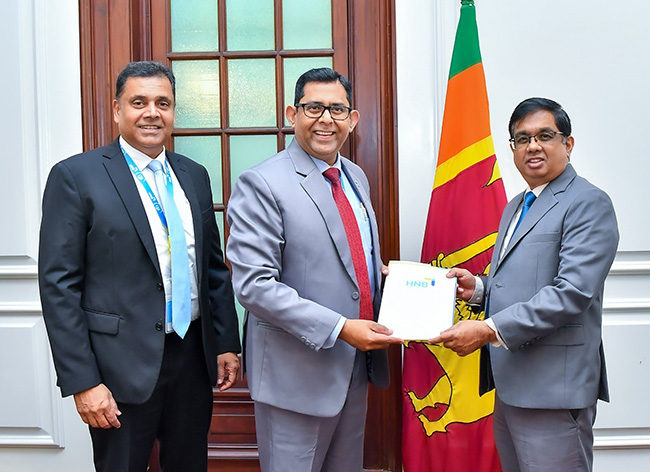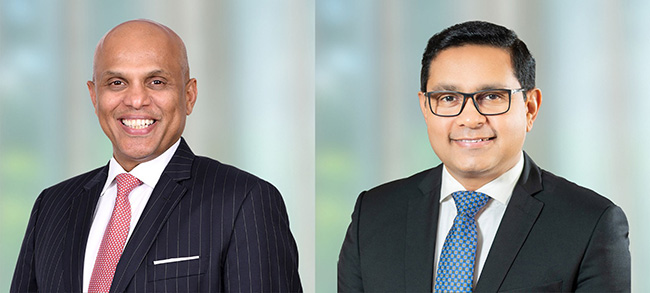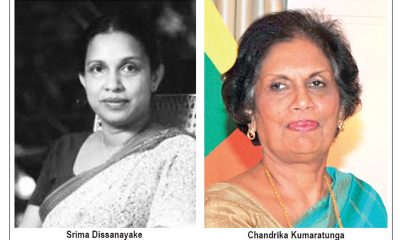Business
Decoding Oil Palm: Myths vs Truths

By Anumita Ghosh
The contents in this article revolves round a scientific research-backed study on oil palm cultivation in the aftermath of the recent ban in Sri Lanka.
Oil palm is considered to be one of the most competitive vegetable oil crops in terms of productivity. The crop provides five times as much vegetable oil per hectare compared to alternative crops, such as coconut, and sequesters more carbon per hectare than tea and coconut. According to studies conducted by Sri Lankan scientists, per litre of palm oil requires lesser fertilisers and less water than coconut, dry rubber or tea. The crop primarily uses rainwater for cultivation, and there is no evidence of palm oil plantations causing groundwater depletion. Yet, despite a wide range of virtues, the Sri Lankan government has decided to ban palm oil production, ordering replacement of oil palm trees with rubber plantations, on grounds of unfavourable environmental and social impacts.
Myths & Truths
 Unfortunately, palm oil has been at the receiving end of a perception that is nurtured based on unfavourable emotions and not facts around it. Claims of oil palm plantations leading to widespread deforestation and damage to ecosystems have hardly any transparent scientific research backing them. In Sri Lanka, oil palm does not replace forest but other plantation crops, primarily rubber or coconut. Therefore, its biodiversity performance needs to be compared with these crops, and as found in various studies, the differences in biodiversity between oil palm, rubber, tea and coconut plantations are neither significant nor conclusive.
Unfortunately, palm oil has been at the receiving end of a perception that is nurtured based on unfavourable emotions and not facts around it. Claims of oil palm plantations leading to widespread deforestation and damage to ecosystems have hardly any transparent scientific research backing them. In Sri Lanka, oil palm does not replace forest but other plantation crops, primarily rubber or coconut. Therefore, its biodiversity performance needs to be compared with these crops, and as found in various studies, the differences in biodiversity between oil palm, rubber, tea and coconut plantations are neither significant nor conclusive.
In an attempt to break the myths around palm oil and its production, Solidaridad has released the “Myths and Truths of Oil Palm”, a research-based scientific study that provides information and assessments on palm oil through an in-depth literature review on research findings by over 15 leading scientists from top universities and research institutions across Indonesia, Malaysia, India and Sri Lanka. A result of extensive research, the publication vividly portrays the social, economic and environmental impacts of oil palm production.
Research highlights
Sri Lanka annually imports 180,000 to 220,000 MT of vegetable oil. This can be met with 50,000 ha of oil palm or 271,000 ha of coconut. Oil palm yields 4 to 5 times oil per ha.
Oil palm plantations have served Sri Lanka for over 54 years, starting around 1968 Palm oil is in many aspects healthier than coconut oil Currently, profits generated per ha/ year; Oil Palm LKR900,000, Coconut LKR280,000, Rubber LKR70,000, Tea LKR45,000 The daily wages per month for workers; Oil palm worker LKR30,000 – LKR50,000, Tea estate worker LKR25,000, Rubber tapper LKR18,000
No evidence has been found of soil and water resource degradation in the oil palm growing estates in Sri Lanka
A worldwide study which included Sri Lanka has shown that in Sri Lanka, the water footprint of coconut oil 10,548 m3water/ton, palm oil 3,946 m3water/ton.
Setting the tone
The launch was organised on 19 January 2022 in a hybrid event with scientists, government ministries and departments, research institutes, private sector, community organisations, media and other participants from Sri Lanka joining the event physically. Panelists and participants from India, Indonesia, Malaysia, the Netherlands and other parts of the world attended the event virtually.
Among the panelists, Dr. Shatadru Chattopadhayay, Managing Director, Solidaridad Asia, began the session on a strong and positive note, highlighting the socio-economic impacts of the crop.
“Stop condemning palm oil while adulating other oils, especially when we know that palm oil provides livelihoods to thousands of communities,” he mentioned, setting the tone of the session.
Professor Maja Slingerland from the Wageningen University of the Netherlands, who is also the study reviewer and editor, spoke at length on the impacts and opportunities of oil palm cultivation in Asia.
Research scholar, Dr. Ranjith Mahindapala, presented the audience with the key findings and recommendations from the publication. The panelists also included Manjula De Silva, Ceylon Chamber of Commerce, Sri Lanka; Mrs. Musdahlifah Machmud, Coordinating Ministry for Economic Affairs, Indonesia; Atul Chaturvedi, Solvent Extractors Association, India; Dr. Ahmad Parveez Ghulam Kadir, Malaysian Palm Oil Board, among others.
One of the panelists, Ms. Margot Logman, Secretary General of the European Palm Oil Alliance (EPOA), delivered an argument through her presentation stating: “Only alternative to palm oil is sustainable palm oil”. She urged for an urgent call to action in support of oil palm cultivation.
“We need to tell the complicated truth about sustainable palm oil, not a simple story. We need to win the trust of consumers with facts, and not emotions, in support of palm oil in Europe,” Logman said.
Logman’s call for a perception makeover of the crop was echoed in the smallholder representative Nimal Wijesinghe’s address to the audience. The president of the Haritha Derana Smallholder Association in Sri Lanka narrated how the small farmers in the region had developed misconceptions about oil palm primarily because they did not grow it and were not aware of the truths about the crop. “On learning about the higher profit and income of oil palm cultivation over other crops, they asked me: Can’t we grow this crop?” he mentioned.
Wijesinghe’s appeal to the authorities marked the perfect denouement to the session as he urged, “Give this crop to the smallholder; give it to the person who owns half an acre of land…the person who can grow only 25 trees. That would be the real Samurdhi (prosperity; also, the name of a government welfare scheme for low-income families in Sri Lanka).”
Anumita Ghosh is a Senior Editor and communication professional at Solidaridad Asia – an international sustainability organisation, and can be reached at anumita.ghosh@solidaridadnetwork.org
Business
David Pieris Group expands global footprint with investment in Dubai-based Navire Logistics

The David Pieris Group continues to strengthen its international presence with the acquisition of 50% ownership in Navire Logistics Services L.L.C, (www.navirelogistics.com) a reputed logistics company based in Dubai and Oman. This strategic move marks a significant milestone in the Group’s journey towards expanding its operations beyond Sri Lanka and positioning itself in the international markets.
In Sri Lanka, the Group’s logistics arm, D P Logistics (Private) Limited (DPL), has already established itself as a comprehensive logistics solutions provider — covering warehousing, transportation, freight forwarding, project logistics, inland distribution and custom house brokering.
DPL currently ranks among the top ten players in warehousing and 3PL operations and holds one of the largest container fleets amongst the logistics companies in the country. Despite operating in a highly fragmented freight forwarding market, DPL continues to capture a growing share, reinforcing its reputation as one of the very few local companies with expertise across all logistics disciplines.
David Pieris Group also acquired in 2022, Pulsar Shipping Agencies (Pvt.) Limited, the shipping arm of Expolanka Holdings PLC to expand its Logistics & Shipping Cluster into ship agency, husbandry services and marine logistics.
Leveraging this strong domestic foundation, DPL has now extended its capabilities to the international stage through its partnership with Navire Logistics Services L.L.C. The company’s expertise in custom house brokering, freight forwarding, cargo consolidation, warehousing, and transport solutions will be integrated into Navire Logistics’ operations, enhancing service quality and efficiency across the Middle East and South Asia.
The investment also extends to operations in Oman through a fully owned subsidiary, with further expansion plans already underway to establish operations in Saudi Arabia, Thailand, and India — strengthening the Group’s regional logistics network.
Business
HNB strengthens national response to Cyclone Ditwah

HNB PLC has contributed of Rs. 100 million towards the Rebuild Sri Lanka Fund, reinforcing its commitment to national recovery efforts following the devastation caused by Cyclone Ditwah.
“On behalf of HNB, I wish to convey our solidarity with all our fellow Sri Lankans, especially those severely affected by Cyclone Ditwah. As a home-grown institution, our connection to the communities we serve runs deep. Many of our customers and colleagues have been directly or indirectly affected, and we are committed to standing with them during this difficult time and supporting them as they rebuild.”
“HNB’s contribution to the Rebuild Sri Lanka Fund is a sign of our commitment to this collective mission. We recognize that this is going to be a long and challenging process, but we stand ready and committed to support both the immediate and long-term recovery effort,” HNB Managing Director/ CEO, Damith Pallewatte stated.
Complementing its direct financial support to the Fund, HNB has also launched a nationwide disaster relief initiative as the first phase of a broader, coordinated response from the bank.
As part of the program, the Bank donated over 2,500 essential relief and nutrition packages to support displaced families, with the consignments formally handed over to the Sri Lanka Army to ensure structured, transparent, and equitable distribution across the impacted areas of Kandy, Gampaha, Kaduwela, and Hanwella, while separate packages were provided to affected employees to strengthen their personal recovery.
Business
ComBank ranked No 1 in Business Today’s Top 40 for 2024–25

The Commercial Bank of Ceylon has been ranked No 1 in the Business Today Top 40 for 2024–25, reaffirming its position as Sri Lanka’s best-performing bank and one of the country’s top five strongest corporate entities for the 17th consecutive year.
Business Today assigned the Bank an aggregate score of 37.65, placing it at the top of its latest ranking of leading Sri Lankan enterprises.
In its presentation of the rankings, Business Today described Commercial Bank as “a beacon of resilience and renewal after a defining year,” noting that 2024 was shaped by strategic transformation, disciplined execution, and unwavering commitment to long-term sustainable growth. The publication recognised the Bank’s strength across key business lines, its deepened customer focus, and a performance trajectory that reinforced its reputation as Sri Lanka’s most resilient and customer-centric financial institution.
Reflecting on the ranking, Mr Sanath Manatunge, Managing Director/CEO of Commercial Bank said: “Being ranked No 1 in the Business Today Top 40 is a powerful endorsement of the discipline, resilience and purpose with which we steered the Bank through a year of tough conditions and decisive transformation. Our performance in 2024 was defined by navigating turbulence without losing sight of our priorities: strengthening fundamentals, supporting customers, and preparing the institution for long-term growth. This ranking is not merely an award; it is confirmation that our strategy is delivering results and that the Bank is firmly positioned to contribute to national progress with renewed confidence.”
Business Today also highlighted the Bank’s record-breaking financial performance during the year. The magazine quoted Mr Sharhan Muhseen, Chairman of Commercial Bank as saying that the Bank had delivered the highest profits in its history, and attributing this outcome to a disciplined focus on efficiency, digital innovation, and customer-centred transformation. These qualities, the publication stated, enabled the Bank to strengthen its market position and make meaningful contributions to economic recovery.
Among the milestones recognised were an equity capital infusion of Rs. 22.54 billion through a rights issue and the raising of Rs. 20 billion in Tier II capital via a debenture issue.
-

 Midweek Review4 days ago
Midweek Review4 days agoHow massive Akuregoda defence complex was built with proceeds from sale of Galle Face land to Shangri-La
-

 Features7 days ago
Features7 days agoWhy Sri Lanka Still Has No Doppler Radar – and Who Should Be Held Accountable
-

 News3 days ago
News3 days agoPakistan hands over 200 tonnes of humanitarian aid to Lanka
-

 News3 days ago
News3 days agoPope fires broadside: ‘The Holy See won’t be a silent bystander to the grave disparities, injustices, and fundamental human rights violations’
-

 Latest News7 days ago
Latest News7 days agoLandslide early warnings in force in the Districts of Badulla, Kandy, Kegalle, Kurunegala, Matale, Nuwara Eliya and Ratnapura
-

 News4 days ago
News4 days agoBurnt elephant dies after delayed rescue; activists demand arrests
-

 Features7 days ago
Features7 days agoSrima Dissanayake runs for president and I get sidelined in the UNP
-

 Editorial4 days ago
Editorial4 days agoColombo Port facing strategic neglect












